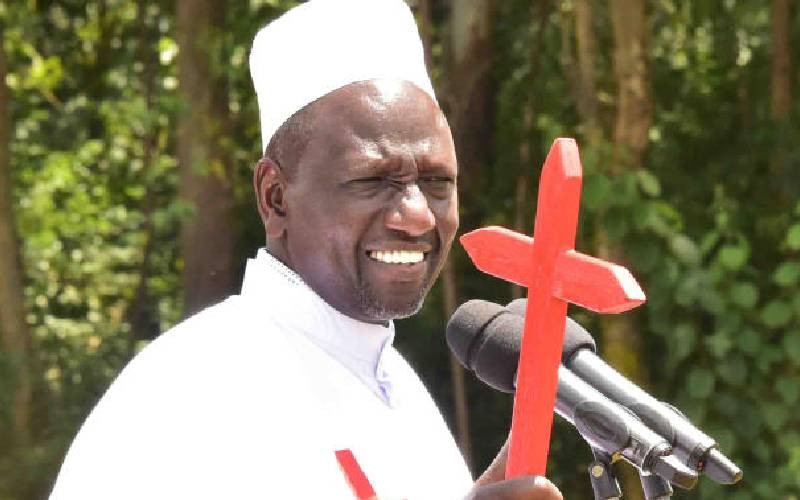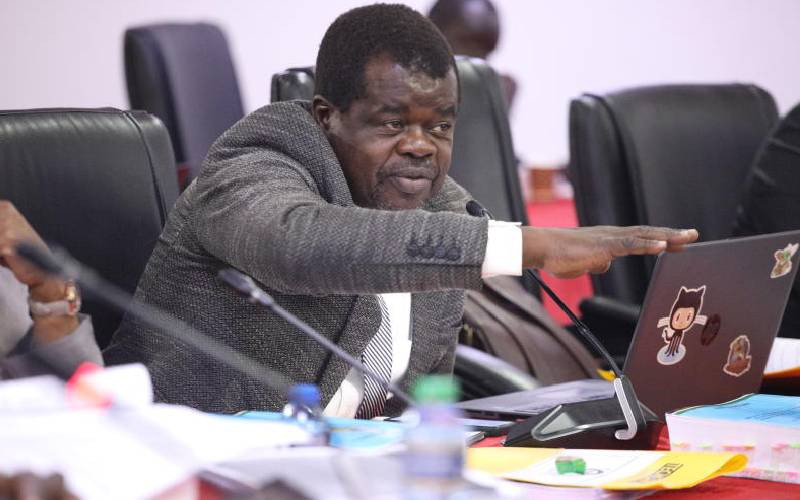Kenya: Experts are divided on whether the national carrier, Kenya Airways, should cancel flights to West Africa in the wake of the Ebola outbreak.
While the World Health Organisation (WHO) yesterday advised against air travel ban to affected countries arguing that transmission remains low in airline transport, some doctors felt continuing operations was risky.
Speaking a day after KQ said it would not cancel flights, the Director of WHO Global Capacity Alert and Response Isabelle Nuttall, said in a statement that so far, there is no need for international travel ban.
“Because the risk of Ebola transmission on air-planes is so low, WHO does not consider air transport hubs at high risk for further spread of Ebola,” said Dr Nuttall.
On the likelihood of a sick passenger, the director explained that chances of others and the crew on board having contact with the body fluids is minimal.
“Usually when someone has contracted Ebola, they are so unwell that they cannot travel. WHO is, therefore, advising against travel bans to and from affected countries,” she said.
Nuttall assured that unlike infections such as flu or tuberculosis, Ebola is not airborne. “It can only be transmitted by direct contact with the body fluids of a person who is sick.”
Korean Air Lines (KAL) has announced plans to suspend flights to Nairobi, starting Wednesday due to fears over Ebola.
So far, only one travel-related illness has been detected, in an airline passenger from Liberia who was sick upon his arrival in Nigeria.
KAL decision was criticised yesterday by the Public Health Society of Kenya (PHSK) saying at the moment there is no rationale to halt flights to West Africa.
“We take exception to the decision of Korean Air to suspend flights to Kenya as there is not public health basis for the action,” said PHSK Chairman Peter Cherutich, in a statement.
The physicians also want the WHO to accelerate access of the experimental drugs to African countries. This comes two days after Liberia got the first dose of the experimental drug ZMapp that is only enough to treat three people.
According to Reuters, consignment of experimental Ebola drugs arrived by plane in Liberia on Wednesday to treat two doctors who contracted Ebola. But by yesterday, it was not clear who would get the third dose.
One of the experimental drugs is said to have run out of stock and it could be months before more is available.
Stay informed. Subscribe to our newsletter
Ear, nose and throat specialist Mbira Gikonyo, however, says Kenya Airways should withdraw all flights to West Africa on public health grounds.
“Ebola is a medical ‘terrorist’ threat because it causes horror and kills. It may not be human but as a threat, it has killed more than Boko Haram in West Africa and more than Al Shabaab in East Africa, calling for more stringent matters in its prevention and management,” said Dr Gikonyo.
“If we seek and prevent the terrorist threats, what are we doing to stop the terror of Ebola?” he posed.
He added that the government and other health agencies have not been proactive in creating awareness on Ebola, causing more panic-driven rumours on social media and in the public. Gikonyo warned that Ebola is a potential threat not only to millions of lives, but also emerging economies of Africa if not well handled.
“Why is the national carrier still flying to West Africa?” he questioned.
Kenyan CDC expert Dr Kariuki Njenga, told The Standard on Saturday that Ebola outbreak is an observed trend of a large number of emerging diseases in the last ten years.
Njenga termed the Ebola cases in West Africa as the highest ever recorded of the haemorrhagic fever in the history of Ebola outbreaks.
He attributed the high number of mortality and morbidity to multiple factors including human behaviour.
“We didn’t expect it to last this long, but the spread could be fuelled by handling dead bodies for burial by relatives and mistrust of health workers who have been blamed by locals for spreading the disease,” Njenga said in an interview with The Standard on Saturday. “People are not revealing they could be sick even when the symptoms are evident,”he added.
The virologist says there is no reason for KQ to stop flying to West Africa if the risk levels advised by global health bodies aren’t high.
He assured that the Kenya Medical Research Institute and CDC labs in Kenya are able to handle both the molecular and serologic tests for haemorrhagic fevers.
 The Standard Group Plc is a
multi-media organization with investments in media platforms spanning newspaper
print operations, television, radio broadcasting, digital and online services. The
Standard Group is recognized as a leading multi-media house in Kenya with a key
influence in matters of national and international interest.
The Standard Group Plc is a
multi-media organization with investments in media platforms spanning newspaper
print operations, television, radio broadcasting, digital and online services. The
Standard Group is recognized as a leading multi-media house in Kenya with a key
influence in matters of national and international interest.
 The Standard Group Plc is a
multi-media organization with investments in media platforms spanning newspaper
print operations, television, radio broadcasting, digital and online services. The
Standard Group is recognized as a leading multi-media house in Kenya with a key
influence in matters of national and international interest.
The Standard Group Plc is a
multi-media organization with investments in media platforms spanning newspaper
print operations, television, radio broadcasting, digital and online services. The
Standard Group is recognized as a leading multi-media house in Kenya with a key
influence in matters of national and international interest.






